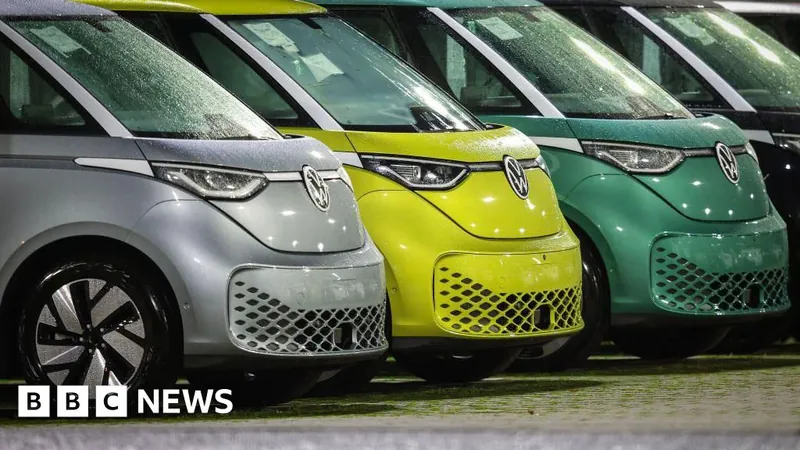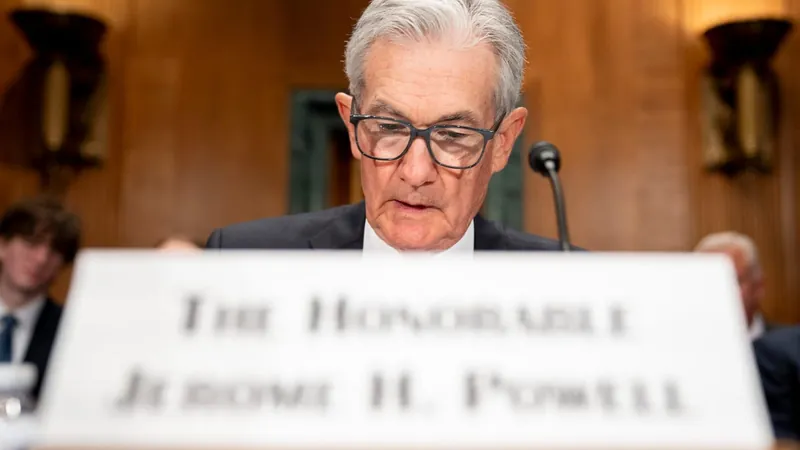
Volkswagen Strikes Historic Deal, Avoiding Plant Closures and Job Losses in Germany!
2024-12-21
Author: Yan
In a major breakthrough, Volkswagen (VW) has successfully negotiated a landmark deal with the IG Metall trade union, ensuring that no manufacturing plants in Germany will close and averting immediate layoffs for its workforce. This development comes amid increasing economic pressures and rising competition from Chinese automotive brands in Europe.
The agreement, which marks a significant turning point for the country’s largest car manufacturer, will, however, lead to a streamlined workforce with over 35,000 jobs expected to be cut by 2030. The restructuring aims to save approximately €15 billion (around £12.4 billion), while the company embraces a more sustainable and competitive operational model.
Negotiations, which have been ongoing since September, reached an optimistic conclusion last Friday. Daniela Cavallo, the chief of IG Metall's works council, expressed satisfaction with the outcome, stating that the deal is a “rock-solid solution under the most difficult economic conditions.” She emphasized that the job security of workers was prioritized, with no site closures or operational layoffs taking place.
The deal comes after VW’s alarming consideration to potentially close up to three plants in Germany, as it sought drastic measures to cut costs. The company had previously requested its employees to agree to a 10% salary reduction, while the union countered by demanding a 7% increase, clearly illustrating the contentious atmosphere of the negotiations.
While the agreement suspends a previously negotiated wage increase of 5% for the years 2025 and 2026, it outlines a commitment to maintain long-term wage agreements. Additionally, the number of available apprenticeships each year in Germany will be slashed from 1,400 to 600 starting in 2026, illustrating the company’s pivot towards an evolving workforce strategy.
In a bid to optimize production, VW may also shift some manufacturing operations to Mexico, exploring alternatives for its sites in Dresden and Osnabrueck. This move raises questions about the future of manufacturing within Germany, a pivotal player in the world automotive industry.
Oliver Blume, VW's group CEO, hailed the recent agreement as a vital signal for the brand's enduring strength and viability. This momentous decision prevents what would have been unprecedented plant closures in VW's storied history.
The renewed urgency of these discussions was evidenced by mass participation in so-called “warning strikes,” with around 100,000 employees rallying at various sites across Germany to urge management to reach a deal before the holiday season.
German Chancellor Olaf Scholz greeted the announcement positively, calling it a “good, socially acceptable solution” during challenging times.
As Volkswagen navigates through undeniable obstacles, including a significant market decline in China, the future remains uncertain. However, this agreement symbolizes a strategic move towards adaptation and resilience in a rapidly changing automotive landscape. Could this define a new era for the German automobile giant?




 Brasil (PT)
Brasil (PT)
 Canada (EN)
Canada (EN)
 Chile (ES)
Chile (ES)
 España (ES)
España (ES)
 France (FR)
France (FR)
 Hong Kong (EN)
Hong Kong (EN)
 Italia (IT)
Italia (IT)
 日本 (JA)
日本 (JA)
 Magyarország (HU)
Magyarország (HU)
 Norge (NO)
Norge (NO)
 Polska (PL)
Polska (PL)
 Schweiz (DE)
Schweiz (DE)
 Singapore (EN)
Singapore (EN)
 Sverige (SV)
Sverige (SV)
 Suomi (FI)
Suomi (FI)
 Türkiye (TR)
Türkiye (TR)